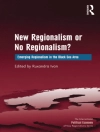In the current European dilemma as to whether to increase diversity policies or move towards an assimilationist policy, it is difficult to know what the Spanish approach is. This book argues that Spain represents a context of “multiple diversity”, where two frameworks interact: an old, unresolved one, arising from democratic transition, and a new one due to immigration. This explains the Spanish practical approach, where the recent past plays the role of an iron cage, limiting institutional innovation and change. The author proposes a heuristic model, to better understand the “Spanish laboratory of diversities”. In order to go through these steps, the author analyses three case studies, coming from the political/social agenda: education, workplace, and political rights. At the end, the reader will have an empirically informed and theoretically founded overview on how Spain is managing diversity. This book is timely for a wide range of academic and professional readers.
قائمة المحتويات
List of figures and tables
Acknowledgements
List of abbreviations
Introduction: multiple diversity in Spain
1. The governance of immigration in Spain: an overview of main topics
2. Policy discourses in Spain in a growing multiple diversity process
3. Multiple diversity in a decentralised education system
4. Multiple diversity in the labour market and in the workplace: combating discrimination against immigrant workers
5. Multiple diversity in the political arena: the limits of political rights of immigrants
6. Concluding remarks: Heuristic of the Spanish philosophy of diversity management
References
عن المؤلف
Ricard Zapata-Barrero is Professor of Political Science at Universitat Pompeu Fabra (Barcelona, Catalonia, Spain), and director of GRITIM-UPF (Interdisciplinary Research Group on Immigration)












